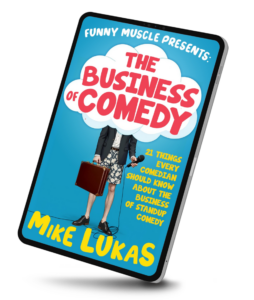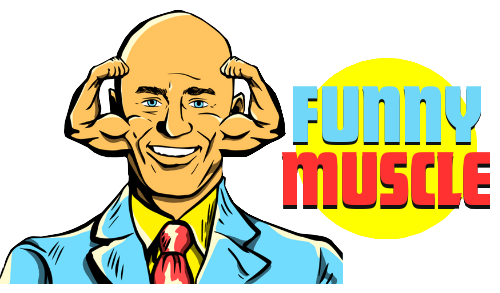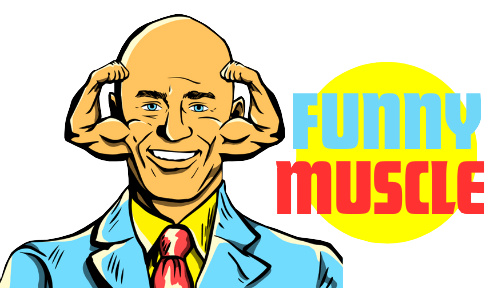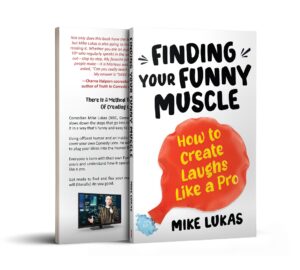My friend Don owns a successful business that’s run by a talented team.
He says that one of the biggest challenges companies like his faces is poor communication. When workers fail to clearly communicate, it festers into a workplace disease. Symptoms include mistrust, a tense environment, decreased motivation to be productive, and an unwillingness to listen and collaborate. Over time, this also translates into unhappy clients and less money for the business and everybody who works there.
Great comedians are excellent communicators, and that’s not by accident.
Due to the tricky nature of our work – making buzzed strangers laugh – comics must learn how to communicate clearly and with purpose at all times. We strive to connect with our audiences because we figured out quickly that when we communicate well, we get laughs.
But when we fail to connect, we bomb.
No pressure there.
Here are Five Comedy Skills That Will Make You a Better Communicator.
Incorporate these wherever you work and watch your team’s ability to connect improve.

1. Timing: A Comedian Understands Perfect Timing
Joke-slingers get the importance of perfect timing.
Comedians learn early on that a well-timed pause gets a bigger laugh than if they rush to the punchline. As with Henny Youngman’s “Take my wife (pause) please.” Funny people also figure out exactly when to (and when not to) say certain things. They learn that when they slow down or speed up their cadence the audience responds differently.
Comics clock the beat of the humorous moment with the ears of a jazz musician. They time their act to the rhythm of the audience’s laughter because each show unfolds differently.
Become a better communicator in the workplace by mastering the skill of “perfect” timing.
Before you push “send” on your text messages, emails, and DMs, consider the timing of your info dump. For a quick second, zoom out and picture the person or people who are about to receive your message and consider whether that will be the best time for them to get it.
You can also improve your verbal communication skills by considering your timing.
Observe how you deliver information. Give your listeners enough time to absorb what you’re saying. Work on adding pauses when you’re rushing and eliminate all those time-consuming “ums” and “uhs.”
Great communicators are conscious of their timing – it makes their messages more captivating.

2. Empathy: A Comedian Learns How to Cognitively Empathize
Empathy is “the ability to understand and share the feelings of another.”
Comedians make a living doing that – our jokes tap into whatever the human collective feels about certain struggles. Comics heighten and mock the sources of our emotional strife. We learn how to look at a struggle from someone (or something) else’s point of view. That allows us to communicate (and heighten) other people’s pain.
Like when Jerry Seinfeld asks, “A friend of mine is going in for a nose job next week. Rhinoplasty! Rhino! Do we really need to compare him to a rhinoceros?”
Also, to write a funny self-deprecating joke, a comedian must be able to mock themselves based on how they think the world (friends, family, coworkers, strangers) feels about them. That’s more cognitive empathy training that successful comedians endure.
Become a better communicator in the workplace by mastering the skill of cognitive empathy.
You’re busy working, we get it. But force yourself to consider the feelings of those on the other end of your messaging. Let that affect what you say to them and how you say it. Maybe serve your critical feedback inside a compliment sandwich. Acknowledge the impact or inconvenience that your communication might create. Put yourself into their shoes and let that affect how you correspond.
Get the business part done, of course, but also realize that you are working with other humans who have feelings. Begin to consider what other people might be facing during their work day and adjust your communication accordingly.
Great communicators are capable of empathy – it makes them kinder messengers.

3. Precision: A Comedian Makes Every Word Count
The best (and funniest) jokes include zero unnecessary words.
Comedians have one main job – to tell jokes that get laughs. So we eliminate any sentences or words in our acts that don’t directly do that.
Watch a great comedian’s performance. There is no throat-clearing, verbal fat, inconsistencies, technical jargon, and never TMI. Always JEI. (Just Enough Info.)
For example, when Mitch Hedberg simply says, “I like rice. Rice is great when you’re hungry and you want 2,000 of something.”
Become a better communicator in the workplace by mastering the skill of precision.
Realize that everyone at work is as busy as you are and would appreciate it if your messages were concise. Re-read what you are about to say / send / share and delete all the extra words.
There will be plenty.
Precise communication is historically difficult to achieve. It’s why mathematician Blaise Pascal once wrote: “I would have written a shorter letter, but I did not have the time.”
However, great communicators are capable of precision – it makes their messages far more digestible.

4. Curiosity: A Comedian Wants to Know Their Audience
Curious comedians ask lots of questions for many reasons, one of which is to collect information they can include in their jokes. That’s one of the many goals of “working the crowd,” to notice our audience’s differences – work, cultural, age, geographical, educational – and react to each of those with our twisted senses of humor.
Like when a man tells Todd Barry, “I came 200 miles from Seattle to see you today.” and Barry says, “Really? You know I’m doing a show there on Sunday, right?”
Before the show and during the day, curious comics are busy searching for information about that crowd and that city. They collect funny local specifics they can pepper in their act that will get recognition laughs from that evening’s crowd.
Become a better communicator in the workplace by mastering the skill of curiosity.
Effective communication flows back and forth, which helps make both parties feel valuable to the exchange. Be curious about your coworkers. Find a few moments to ask them questions that will help you get to know and understand them.
Combine that curiosity with cognitive empathy and suddenly your connection with the people you’re communicating with grows exponentially. That makes a fun place to work.
Great communicators have an abundance of curiosity – it gives their messaging more relatability.

5. Thick Skinned: A Comedian Handles Hecklers
The job of “comedian” includes handling hecklers.
These are usually drunk patrons who have decided they want to be a part of the show. Sometimes it’s because they don’t think the comedian is funny. Other times it’s because they are offended by something that was said. Often they get swept up in the moment the comedian just created and feel the need to add in their own “funny” two cents. Handling negative or unwanted pushback under pressure forces comedians to develop rhino-thick skin.
Like when Steve Martin famously smiled at his heckler and said, “I remember when I had my first beer.”
We learn to take nothing a heckler says personally (yeah right) because we force ourselves to let go of our ego in those moments. Instead, we develop our listening skills. We train to notice more than just “what” the heckler said, also considering why, where, when, and how the heckler said it. We use all that information to get to the heart of the issue and slam them in a way they weren’t expectiing. If it’s untenable, we learn how to signal the club to force the heckler to leave.
Become a better communicator in the workplace by developing thicker skin.
Believe it or not, most coworkers are not out to insult you or to get you in trouble or fired. So it’s often safe to assume that the “rude” comment directed your way is simply a miscommunication. Let it bounce off your leather hide and do your best to deescalate and redirect the topic of conversation.
With a thicker skin it’s easier to ignore subliminal attacks and between-the-line barbs. Instead use that same energy to problem solve and turn that workplace enemy into an ally. If it’s truly untenable – “even paranoid people have enemies” – figure out how to signal your boss to get that workplace heckler to leave you alone.
Great communicators have thick skin – it makes them easier to have a bad day around.
**** This article is lifted directly from Mike’s corporate talk “Comedy Skills That Make You a Better Communicator.”
Book Mike to present this effective (and hilarious) talk to your work team. Click for details ****
Get your FREE copy of The Business of Comedy!

Includes:
- How Comedians are 5-Tool Players
- How to Attract a Following
- How to Get Bookings
- How to Create Multiple Income Streams
- Manager vs Agent
- And More!






